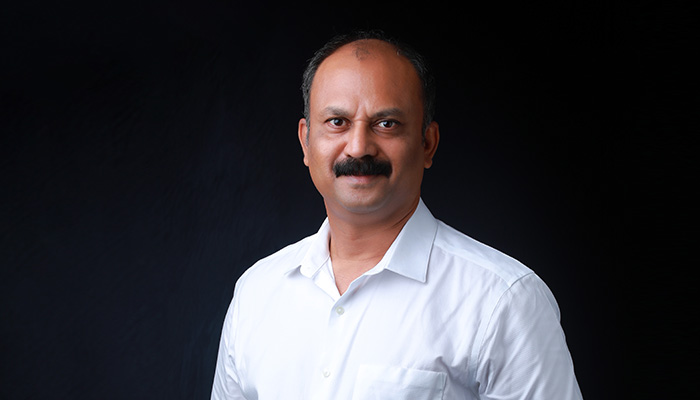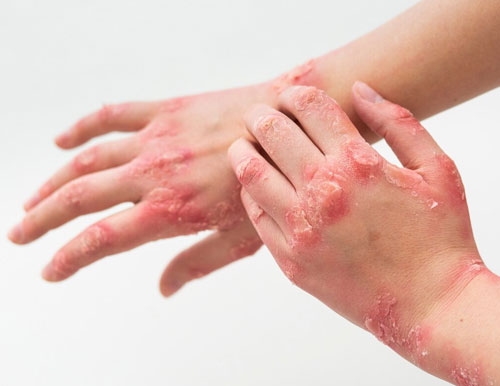Book an Appointment +91-95000 01177
Diabetes is a complex metabolic disorder that arises when the concentration of glucose, commonly known as blood sugar, becomes elevated in the bloodstream. This condition can affect individuals of all ages, presenting a significant health challenge globally. The regulation of blood sugar is a finely tuned process, primarily orchestrated by insulin, a hormone produced by the pancreas. In diabetes, the body’s ability to either produce insulin or utilize it effectively is impaired, leading to persistent hyperglycemia (high blood sugar levels). Understanding the causes, symptoms, and management of diabetes is crucial for individuals and healthcare professionals alike.
Impact on Health
The consequences of uncontrolled diabetes can be severe and wide-ranging. Elevated blood sugar levels over an extended period can lead to complications affecting various organs and systems. These complications include cardiovascular problems, kidney disease, nerve damage (neuropathy), eye issues (retinopathy), and an increased risk of infections. Diabetes management focuses not only on controlling blood sugar levels but also on preventing and mitigating these complications through a holistic approach to healthcare.

Schedule Your Healing Journey: Book an Appointment for Treatment.
Book an AppointmentGlucose is the main source of energy for the body and fuel for the brain. In a healthy individual, several hormones, including insulin, regulate blood glucose levels, allowing it to be used as fuel.
Eating food naturally increases blood sugar. The excess sugar is converted to glycogen and stored by the body. As and when needed, the glycogen is broken down into glucose and used for energy. When the body fails to carry out this process efficiently, the excess sugar remains in the blood and the person is said to be suffering from diabetes.
In classical Ayurveda text, Charaksamhitha under Premeha chikilsa sixth slokas state that that there are 20 types of prameha (diabetes). Of these, ten types are caused by kapha disorder and can be cured. Another six types are caused by pitta dosha and can be managed. The last four types are caused by vatha and cannot be cured.
In prameha patients (diabetics), the body either does not make enough insulin (Type 1), or is unable to use it efficiently and effectively (Type 2).
While modern medicine resorts to testing blood to determine sugar levels in the body it must be noted that blood drawn from different extremities of the body at the same time will show entirely different blood sugar values.
Ayurveda advises testing for sugar in the urine to gauge the body’s sugar levels. The treatment and management of prameha (diabetes) is based on urine parameters.
Allopathic or Western system of medicine sees the pancreases as the root cause of diabetes. It focuses on this one organ and the treatment is centred on supplying the body with insulin supplements. But, lack of insulin or weak insulin is not the root cause!
It is necessary to understand that insulin IS NOT the only hormone responsible for blood sugar regulation.
The pancreas secretes the hormone Amylin along with insulin to maintain the body’s blood sugar levels. Another hormone Leptin, which is stored in body fat, also helps regulate insulin. Stress hormone like cortisol affects insulin production and absorption in the body. Even Melatonin, the sleep hormone, impacts insulin production.
Further, the body’s beta cells must be maintained in healthy numbers for the body to make enough insulin. Even anti-insulin hormones like glucagon facilitate the release of blood sugar into the blood when levels drop too low.
It is the perfect chemistry and balance between all these hormones that keeps blood sugar at healthy levels. The healthy body not only manages insulin production but also ensures that all the other hormones are secreted in the right amount and at right time to control blood sugar.
If the hormone balance is such a complex issue, how can insulin supplementation alone cure a diabetic?
This is the reason why prameha (diabetes) continues to progress and worsen the patient’s health despite regular insulin injections and multiple medications. Anti-diabetic agents tend to dry out the body of glucose in an effort to reach effective sugar levels, resulting in reduced nourishment to the pancreas, liver and kidneys. This manifests as weight loss, loss of skin texture, loss of body hair etc.
Since the root cause is not addressed, the body starts to degenerate resulting in neuropathy, nephropathy, atherosclerosis, vascular complications, diabetic ulcers, dry skin and retinopathy. This degeneration is a result of Hyperinsulinemia, which is a condition caused by the insulin- supplements and insulin injections prescribed by modern medicine. Hyperinsulinemia leads to inflammation in all internal organs and it also affects the brain. In Ayurveda, this state is known as Oja Nasha.
We look at Diabetes as a Degenerative. Unlike the modern medicine which forces the pancreas to produce more insulin, our medicine works on the liver to keep the body to have Samaghni.
Wrong diet – Prameha (diabetes) can be described as carbohydrate toxicity or intolerance to carbohydrates. This can happen when the body is fed simple carbs alone, all the time. The body pumps insulin to digest the carbohydrates making one feel hungry very soon after a meal. The hunger pangs leads to overeating, and often overconsumption of carbohydrates.
Obesity – Excess fat is also a risk factor. The condition may be due to wrong diet, excess calories, and lack of physical activity or hormone imbalance. Type 2 prameha (diabetes) is linked to a number of lifestyle factors, including obesity.
Sedentary lifestyle – Any lifestyle with little or no physical activity weakens the immune system. With the body’s stress management system inactivate, it goes into a state of inflammation.
Hereditary factors – Prameha (Type 1 diabetes) was thought to be entirely genetic. But, researchers now believe that something in the environment triggers the condition in some people, explaining why some members of a family become diabetic while others do not. Cold weather and certain viruses are also considered to be likely causes for the disease.
Hereditary factors – Prameha (Type 2 diabetes) is at least partially hereditary. People with a family history of the disorder are more likely to develop this type of diabetes.
Stress – Chronic stress can lead to insulin resistance, which in turn elevates blood sugar levels. With regular exercise, meditation or yoga, the levels of stress hormones in the body decreases, resulting in better blood sugar control.
Toxins – Whatever goes into the body, be it food or medicine, the body converts it into an absorbable form and what cannot be absorbed remains within as toxin till such time it gets eliminated. This produces Ama, and as per Ayurveda, is a cause for diseases like prameha (diabetes).
Instead of directly supplementing the body’s insulin or forcing the pancreas to produce more, Punarjani’s medicines work on the liver aiding the body to maintain and promote metabolism. This stimulates the brain to achieve hormonal balance in the body. This manner of treatment does not load the body with excess insulin and protects it from inflammation.
In Ayurveda, prameha is considered a disease originating from kapha. The progression of prameha (diabetes) can be halted even if one has been suffering from the disease for years.
Those on allopathic medicines or on insulin may be able to stop taking insulin injections and come off medications after undergoing Punarjani’s Agnirasa prameha (diabetes) reversal treatment.
AGNIRASA – 14 day residential treatment protocol for prameha (diabetes) reversal
Agnirasa is a treatment protocol developed by Dr. Shaji Raj to effectively treat and manage prameha (diabetes). The therapeutic regimen has shown remarkable results over the years. Many patients have managed to wean themselves of insulin injections and other medications while maintaining healthy blood sugar levels.
The comprehensive treatment protocol addresses secondary diseases like that of the heart, liver, kidneys and others organs that have been damaged either due to very high blood sugar levels or prolonged treatments and medications.
Those currently on insulin injections and allopathic medicines can undergo this treatment.
Patients who have a history of prameha (diabetes) are encouraged to bring the following test results with them.
- HbA1C
- C-peptide
- HOMA IR Index
- Insulin sensitivity
- Beta cell function
- Apolipoprotien A-1
- Apolipoprotien B
- Lipoprotein A
- Hs-CRP
- Homocysteine quantitative
- Vitamin D
- Ultrasound scan of the liver to check for Fatty Liver
- Lipid profile
- Thyroid profile
- Reports of any prior surgery
- Details of medication taken orally and injections
- Any drug allergies/ food allergies
Stage 1 of Agnirasa
- The patient is fitted with a CGM (continues glucose monitoring) sensor. The CGM reader is given to the patient so that they can track their blood sugar levels 24/7 for the next fortnight.
- After a complete check up all modern medicine for diabetes are stopped. Based on the analysis of patient’s dietary and lifestyle habits a personalized treatment protocol is devised.
- Detoxification is done for the next 14 days with the help of internal medicines, including Dia-drops, along with external treatments.
- A suitable diet, yoga and exercises are prescribed according to the individual’s needs.
Stage 2 of Agnirasa
- At the end of the 14 day programme, the patient is sent home with a clear diet and exercise plan. Medicines will have to be continued for a few more weeks.
- Patients are advised to monitor their urine sugar levels 15 days or 1month after they have undergone treatment, according to the complexity the condition. If all the reports are normal, the dosage of the medicines is reduced and tapered off.
Patients who undergo Agnirasa treatment successfully bring down their blood sugar levels. Those who continue the lifestyle and follow the diet recommendations have been able to stop taking all types of medications for prameha (diabetes).
The aim of Agnirasa treatment is to effectively manage prameha (diabetes) without causing internal organ inflammation. After undergoing this treatment, those suffering from prameha (diabetes) can go on to live a healthy and medicine-free life.
Happy Customers
"I had been struggling with diabetes for years, and nothing seemed to work effectively until I discovered Dr. E. Shaji Raj's Ayurvedic Arka Medicines. They have been a game-changer for me. My blood sugar levels are now under control, and I feel healthier than ever. Thank you, Dr. Shaji Raj!"
-John"I was skeptical about trying Ayurvedic remedies for diabetes, but after giving Dr. E. Shaji Raj's Arka Medicines a try, I'm a believer. These medicines have helped me manage my diabetes without the need for excessive medication. I feel more energetic and vibrant. Highly recommended!"
- Sarah"As someone who has tried various treatments to control diabetes, I can confidently say that Dr. E. Shaji Raj's Arka Medicines are the real deal. They are not only effective but also safe and natural. I've seen a significant improvement in my health, and I'm grateful for these life-changing remedies."
- RajeshAll our medicines are 100% ayurvedic arka medicine
- Formulated in the unique style of DR. E. Shaji raj. They are not some weak supplements. They are able to stand alone and efficiently cure diseases.
- Our medicines are extracts of medicinal plants, herbs, roots, tree barks in their purest forms
- No heavy metals, preservatives, sugar, Bad strong taste, artificial colours or hidden x-factors
- Our medicines can be used along with modern medicines till such time you wean yourself off modern medicine.
BlogsIn The Infinity Of Life, Take Time Out For The Soul
Read all blogsWith the drastic and unpredictable change in the climatic condition and increasing pollution in our environment the incidence of Sinusitis are increasing in our Country.
Read MoreThis informative piece sheds light on the nature of this chronic autoimmune condition, its potential causes, symptoms, and available treatment options.
Read More




